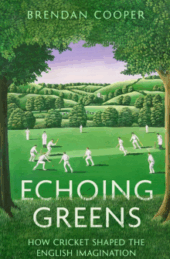Early in Richard Cohen’s excellent Making History he quotes his distinguished predecessor, the late John Burrow: ‘Almost all historians … have some characteristic weakness … It is often the source of their most interesting writing’. Cohen’s weaknesses are for story, fascinating facts and insights, telling anecdotes, piecing characterisations…I could go on and on. In other words, his Making History is an endlessly fascinating read. It is long, over 650 pages of text, but his publishers (Weidenfeld) were evidently confident – with some justification – that this one would sell and sell, so they’ve priced it at a miraculous £25.
This work is without a dull page from start to finish. For instance, Herodotus tells us that Ancient Egyptian men urinated sitting down, and their women standing up; whereas the Greeks reversed this process. The Holinshed upon whom Shakespeare drew for his histories was in fact the second edition, which was largely written by other writers. By the time we reach the 20th century, the luminous tidbits of history, and historians, fall fast and furious. If history can be seen as a drama, with historians as the first-night critics, then Cohen gives us the skulduggery, one-upmanship and put-downs that occur between these critics in the dress circle bar during the interval.
As Cohen’s sub-title indicates, he inclines to Disraeli’s view of his subject: ‘Read no history – nothing but biography, for that is life without theory’. History may have its dull patches, its uninteresting times when civilization flourishes, but this history illuminates why such uninteresting times were in fact interesting. This is a history of historians in the widest sense: story-tellers and precision-scholars stand side by side, the opinion of novelists is matched blow for blow with that of professors. When Freud and Jung visited America together, it is known that they went on a trip to Coney Island. Did they really take a ride together through the Tunnel of Love, as J.L.Doctorow suggests in his novel Ragtime? ‘They do now,’ Doctorow replied unrepentantly. ‘The historian will tell you what happened, the novelist will tell you what it felt like’. This is a different kind of history, Cohen suggests, but it is a kind of history nonetheless. In the chapter entitled: ‘Once upon a time: Novelists as past masters’, he lets Harvard historian Jill Lepore muse: ‘Historians and novelists are kin … but they’re more like brothers who throw food at each other than like sisters who borrow each other’s clothes …’ History is a ‘long and endlessly interesting argument, where evidence is everything and story-telling is everything else’.
For sheer intelligence, there is little to match Hilary Mantel’s Reith Lecture of 2017. History ‘is not the past, it is the method we’ve evolved of organizing our ignorance of the past … It’s what’s left in the sieve when the centuries have run through it.’
Even TV and film history have their place in history – both when they invent it, and for the influence they exert. President Reagan once corrected his advisers: ‘It wasn’t like that in the movie.’ Cohen’s Making History is not afraid to entertain the truth in all its guises in an age when history is obliged to fight its corner against fake news.

Making History: The Storytellers Who Shaped the Past by Richard Cohen is available now.
Paul Strathern is the author of Rise and Fall: A History of the World in Ten Empires. The Florentines is his latest book.





